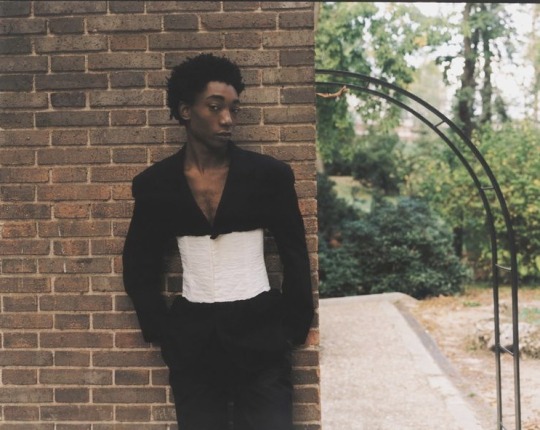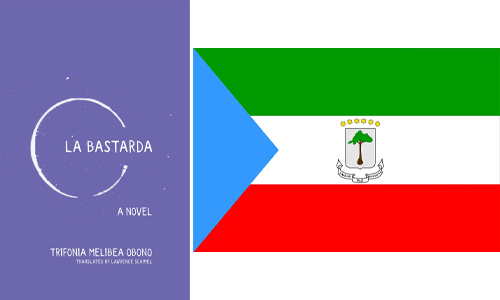#Melibea
Explore tagged Tumblr posts
Text
This leafs Dress is worn on Penélope Cruz as Melibea from La Celestina (1996) and worn again on Unknown Actor as Lady from Shakespeare in Love (1998) and worn again on Unknown Actor as Lady from The Tudors Wolsey, Wolsey, Wolsey! (2007) and worn again later on Unknown Actor from Galavant Pilot (2015)




#recycled costumes#La Celestina (1996)#penélope cruz#Melibea#shakespeare in love#the tudors#galavant#period drama#historical drama#costume drama#reused costume#reused costumes#perioddramasource#perioddramaedit#dramasource
48 notes
·
View notes
Text
Like, imagine Juliet and Melibea talking.
Juliet is "We have so much in common! My Romeo died, out of love as he believed I was dead as well. And so did I when I discovered it" and Melibea, who also died because of grief and love, be like How do I explain that Calisto died because he fall from the stairs? How can I make that romantic?
(To make this clear, taking your life bc someone you love died isn't romantic irl.)
#romeo and juliet#juliet capulet#melibea#la celestina#the celestina#tw death#should I add a spoiler tag?#tw suicide
5 notes
·
View notes
Text
"Lo malo de Celestina es precisamente que no se deja arrastrar por la corriente del amor"
Ramiro de Maeztu
#celestina#ramirodemaeztu#filosofia#novela histórica#tiempo-para-el-alma#calisto#melibea#amor y dolor#tiempo#alma#satanas
0 notes
Text

💜 La Bastarda by Trifonia Melibea Obono (trans. Lawrence Schimel)
Rating: 🌟🌟🌟🌟/5
Orphaned teen Okomo lives under the watchful eye of her grandmother and dreams of finding her estranged father. Forbidden to seek him out, she enlists the help of other outcasts: her gay uncle and a gang of “mysterious” girls.
This book takes place in Equatorial Guinea, which I admit to not knowing much about, but the book is rich in culture and you really get a good look at it as Okomo struggles against the rigid systems in place. Okomo, who just wants to find her place in the world, is such a relatable character to follow. The ending comes fast, but it is satisfactory nonetheless. It really is a story of finding your own family when the one you’ve been given has failed you.
#godzilla reads#la bastarda#trifonia melibea obono#book blog#reading#book review#queer lit#lgbtq books#bookworm#bookish#bibliophile
15 notes
·
View notes
Text

11 notes
·
View notes
Text
He escrito fanfic de la Celestina para clase
3 notes
·
View notes
Text




LGBTQ and Equatoguinean: Concha Buika, Trifonia Melibea Obono, Jade Boho and Luis Mba
15 notes
·
View notes
Text


Now Reading:
Trifonia Melibea Obono "La Bastarda" (2018)
Photo Credit: karmaalwayswins
#trifonia melibea obono#lawrence schimel#african literature#equatorial guinea#lgbt#now reading#not sure how to tag my own posts at this point
0 notes
Text
Honestly 1st World rainbowashed feminism really has white queers feeling great for demonizing african women.
#beo.txt#yes this is about the olympics#but its also the demonization of african parents as somehow more homophobic just by nature of them being african#and how discussions of racism in white spaces leaves out environmental racism bc it affects african (and latin and asian) women more#also how many people still equate africa's vast beauty standards and cultures to 'savagery' even if they use nicer words#see how tattoos are cool. but scarification? brutalizing!#if you like this post u should go read african feminist literature#u can start with Trifonia Melibea Obono's La Bastarda
0 notes
Text
This Robe Dress is worn on Penélope Cruz as Melibea in La Celestina (1996) and worn again later on Sara James as Princess Marguerite in The Tudors (2007)


#recycled costumes#La Celestina (1996)#penélope cruz#Melibea#the tudors#sara james#Princess Marguerite#period drama#historical drama#costume drama#reused costume#reused costumes#costumes#perioddramasource#perioddramaedit#dramasource
2 notes
·
View notes
Text
La Bastarda by Trifona Melibea Obono

genres: contemporary, LGBTQ
translator: Lawrence Schimel (from Spanish to English)
rating: didn’t rate
themes: queer issues, womens issues, family, tension between traditional and modern perspectives
The first novel by an Equatorial Guinean woman to be translated into English, La Bastarda is the story of the orphaned teen Okomo, who lives under the watchful eye of her grandmother and dreams of finding her father. Forbidden from seeking him out, she enlists the help of other village outcasts: her gay uncle and a gang of “mysterious” girls reveling in their so-called indecency. Drawn into their illicit trysts, Okomo finds herself falling in love with their leader and rebelling against the rigid norms of Fang culture.
0 notes
Text
"Recoged desde hoy las rosas de la vida,"
soneto de Ronsard
#celestina#alma#amor#ramirodemaeztu#satanas#amor y dolor#vida#calisto#melibea#filosofia#letras#tiempo-para-el-alma
0 notes
Text

Found at The Irreverent Bookworm in Minneapolis, MN.
📖 La Bastarda by Trifonia Melibea Obono (trans. Lawrence Schimel)
#godzilla reads#bookshop#purple books#book blog#la Bastarda#Trifonia Melibea Obono#reading#currently reading#queer books#books#bookworm#bookish
12 notes
·
View notes
Text
sharing some books I read recently and recommend for women in translation month!
for more: @world-literatures
Two Sisters by Ngarta Jinny Bent & Jukuna Mona Chuguna (Translated from Walmajarri by Eirlys Richards and Pat Lowe)
The only known books translated from this Indigenous Australian language, tells sisters Ngarta and Jakuna's experience living in traditional Walmajarri ways.
2. Human Acts by Han Kang (Translated from South Korean by Deborah Smith)
Gwangju, South Korea, 1980. In the wake of a viciously suppressed student uprising, a boy searches for his friend's corpse, a consciousness searches for its abandoned body, and a brutalised country searches for a voice.
3. Things We Lost in the Fire by Mariana Enriquez (Translated from Spanish by Megan McDowell)
Short story collection exploring the realities of modern Argentina. So well written - with stories that are as engrossing and captivating as they are macabre and horrifying.
4. Portrait of an Unknown Lady by Maria Gainza (Translated from Spanish by Thomas Bunstead)
In the Buenos Aires art world, a master forger has achieved legendary status. Rumored to be a woman, she seems especially gifted at forging canvases by the painter Mariette Lydis, a portraitist of Argentine high society. On the trail of this mysterious forger is our narrator, an art critic and auction house employee through whose hands counterfeit works have passed.
5. My Brilliant Friend by Elena Ferrente (Translated from Italian by Ann Goldstein)
My Brilliant Friend is a rich, intense and generous-hearted story about two friends, Elena and Lila. Through the lives of these two women, Ferrante tells the story of a neighbourhood, a city and a country as it is transformed in ways that, in turn, also transform the relationship between her two protagonists.
6. Childhood by Tove Ditlevsen (Translated from Danish by Tiina Nunnally and Michael Favala Goldman)
Tove knows she is a misfit, whose childhood is made for a completely different girl. In her working-class neighbourhood in Copenhagen, she is enthralled by her wild, red-headed friend Ruth, who initiates her into adult secrets. But Tove cannot reveal her true self to her or to anyone else.
7. La Bastarda by Trifonia Melibea Obono (Translated from Spanish by Lawrence Schimel)
The first novel by an Equatorial Guinean woman to be translated into English, La Bastarda is the story of the orphaned teen Okomo, who lives under the watchful eye of her grandmother and dreams of finding her father. Forbidden from seeking him out, she enlists the help of other village outcasts: her gay uncle and a gang of “mysterious” girls reveling in their so-called indecency. Drawn into their illicit trysts, Okomo finds herself falling in love with their leader and rebelling against the rigid norms of Fang culture.
8. Strange Beasts of China by Yan Ge (Translated from Chinese by Jeremy Tiang)
In the fictional Chinese city of Yong’an, an amateur cryptozoologist is commissioned to uncover the stories of its fabled beasts. Aided by her elusive former professor and his enigmatic assistant, our narrator sets off to document each beast, and is slowly drawn deeper into a mystery that threatens her very sense of self.
#women in translation#translated fiction#booklr#book recommendation#books#mine#i sort of forgot it was this month which feels bad but#I mean I read translated women all the time but still I wanted to do smething
60 notes
·
View notes
Text
This leafs Dress is worn on Penélope Cruz as Melibea from La Celestina (1996) and worn again on Unknown Actor as Lady from Shakespeare in Love (1998) and worn again on Unknown Actor as Lady from The Tudors Wolsey, Wolsey, Wolsey! (2007) and its worn later in Season 1 of The Tudors (2007) on Gabrielle Anwar as Princess Margaret Tudor and worn again later on Unknown Actor from Galavant: Pilot (2015) and last seen on an extra in Carlos rey emperador (2015)






#recycled costumes#La Celestina 1996#shakespeare in love#the tudors#gabrielle anwar#Princess Margaret tudor#galavant#carlos rey emperador#costume drama#historical drama#reused costume#reused costumes#dramasource#drama series#reblogs costumes#source: historicalreusedcostumes
10 notes
·
View notes
Text
Look how I lose my mind making literature comparisons between two completely different things.
Wkm x La Celestina
Who killed Markiplier is a tragicomedy, because it blends tragic aspects with comic ones elements. This reminds me of a famous Spanish classic, La Celestina. This novel, is a tragicomedy too, it tells the story of a passionate love affair that end in tragedy. Calisto, a nobleman, has fallen in love with Melibea, but she doesn’t show any interest in him. Faced with Melibea’s rejection, Calisto seeks the help of Celestina, an old woman, a ‘witch’, whose job is to make Melibea fall in love with Calisto.
Spoiler alert for La Celestina and Who Killed Markiplier
At the end all the people involved in that affair end dead. Doesn’t that sound familiar? The characters represent different roles of literature, but exaggerates them and make fun of them. Calisto is the hopeless lover and Melibea, is the lady that has to be win over. They are two very different types of stories but they share some characteristics. This story mixes both comedy and tragedy. In both stories there is influence of dark magic, Melibea falls in love with Calisto because of Celestina’s influence and Actor Mark seeks revenge and organizes the party because of the house’s Entity influence. The characters’ s roles are used for comedy and made fun of. For example, there is a big exaggeration in the detectives, coronel, and Benjamin (the butler) roles. Calipso and Mark are pitiful characters and are the origin of all the problems of the story. In the end, there is only tragedy and death.
2 notes
·
View notes